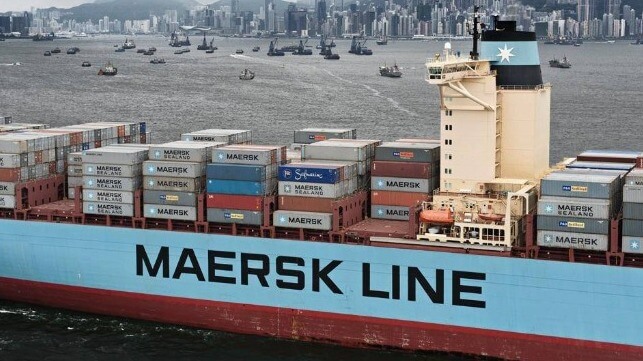Maersk Reports Exceptional Results But Sees Market Softening

While reporting its fifteenth consecutive quarter of year-over-year earnings growth and raising its forecast for the full year, A.P. Moller – Maersk is however also sounding a caution citing market uncertainties along with a decline in container volumes and softening of both spot and contract freight rates. The shipping giant however delayed its outlook for normalizing markets till later in 2022 while also detailing the expected impact of environmental efforts in the next few years.
“We delivered exceptionally strong results for the second quarter,” said Soren Skou, CEO of A.P. Moller- Maersk. He cited strong contract rates for their ocean shipping operations, rapid profitable growth in the logistics business, and a solid performance from the company’s terminal operations. These factors contributed to a 52 percent increase in the company’s revenues while earnings more than doubled for the quarter compared to the year earlier. The ocean shipping portion of the business grew revenues to $17.4 billion while profits increased to $8.5 billion (EBIT) driven by higher freight rates.
The company’s near-term confidence comes in part from the fact that nearly 70 percent of its volumes are carried under contracts. While freight rates have declined Skou expressed confidence in the company’s blue chip customer base which he believes will continue forward with their contracts. Maersk said, “Freight rates softened marginally over the quarter, but remained at a high level historically as supply chain congestion increased across the globe.” Maersk believes that the congestion issues will persist and noted that the company continues to sign contracts with customers at rates above the previous year's levels.
While the surge in consumer demand had fueled the rising in the company’s volumes over the past two years, Skou now believes that inflation is impacting consumer buying in some key segments such as furniture and electronics while other segments including fashion and lifestyle products continue strong. The war in Ukraine and the slowing of consumer demand, especially in Europe was cited among the reasons Maersk experienced a 7.4 percent decline in volumes in the second quarter (down 2.3 percent compared to the year ago). Other factors including higher fuel, handling, and network costs also offset the strength in freight rates.
“Geopolitical uncertainty and higher inflation via higher energy prices continued to weigh on consumer sentiment and growth expectations. Given this background, in 2022 global container demand is now expected to be at the lower end of the -1 to +1 percent forecasted range,” Maersk advised investors. Yet, despite the expectations that the market will continue to slow to more normalized rates in the fourth quarter, Maersk still raised its outlook for the year saying it anticipates an underlying EBITDA of around $37 billion, an underlying EBIT of around $31 billion and a free cash flow above $24 billion for the year. The Board of Directors also decided to increase the current share buyback program by $500 million annually to $3 billion for the years 2022-2025.
The company is still accessing the impact of the pending environmental regulations, including the IMO’s initiatives including EEXI and CII ratings which start to go into effect but Skou said they do not expect enforcement to start till 2024 and 2025. Last month, they warned customers that significant surcharges were likely based on the pending EU Fit for 55 proposals. Discussing the impact of the pending carbon ratings for the fleet, Skou told investors the company would need between 5 and 15 percent more capacity as it approaches 2030 to offset the potential for having to slow steam to improve the CII rating. He cited the short supply and cost of biofuel which is the other near-term available option for the in-service fleet.
As the second largest carrier behind MSC, Maersk currently (according to Alphaliner) has a fleet of over 700 vessels and a capacity of nearly 4.3 million TEU. So far, they have been cautious on new ship orders, placing a few for dual-fuel vessels that will use methanol, while continuing to explore the available options to meet future regulations.
